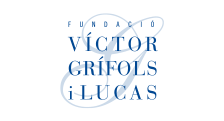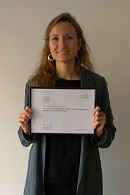Web Content Article
2025
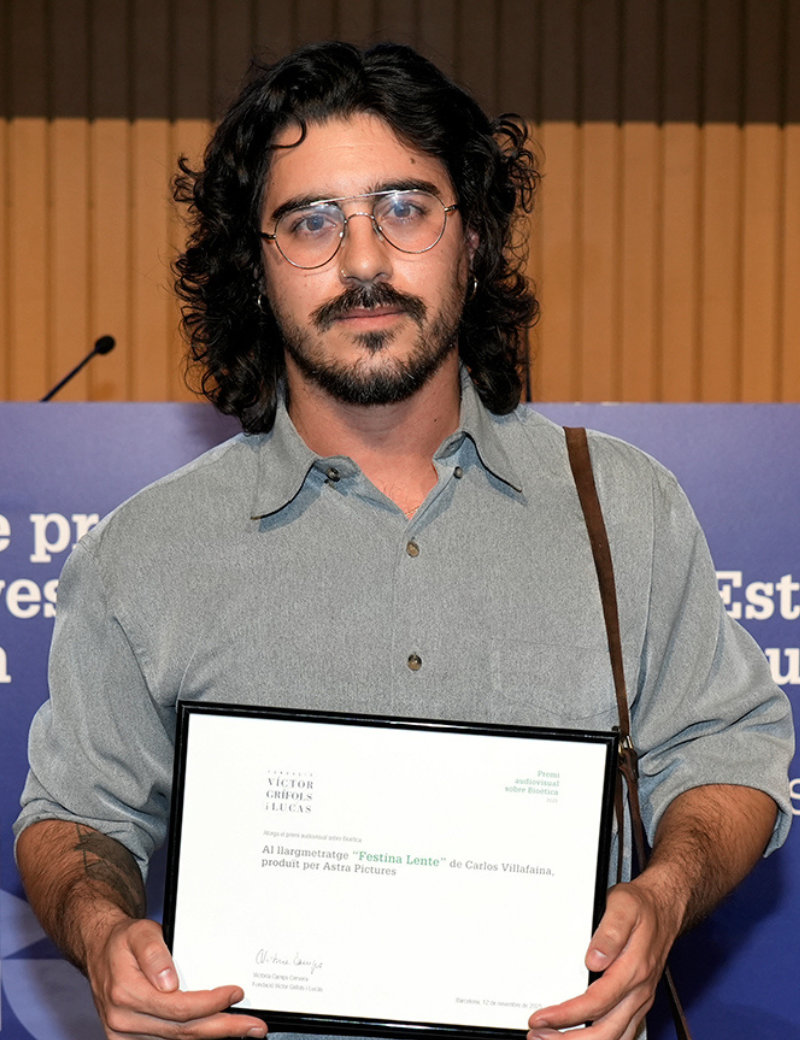
This film tells the story of David, a music teacher who, after the death of his mother, must take responsibility for his twin brother Amador, who has cerebral palsy. The film explores the tensions between independence and dependence, as well as the guilt, frustration, and rediscovery that come with learning to care for one another. Told with intimacy and realism, the story follows two brothers—nearly strangers after years of distance—as they attempt to rebuild their relationship within a context shaped by functional diversity.
Inspired by the personal experience of the director, Carlos Villafaina, the film is an honest portrayal of disability that eschews stereotypes. Festina Lente is a work of social cinema that invites reflection on how we understand the autonomy of people with functional diversity. Rooted in realism and emotional depth, the project aims to connect with both general audiences and individuals living with functional diversity, telling a story of vulnerability, autonomy, and love.
2024
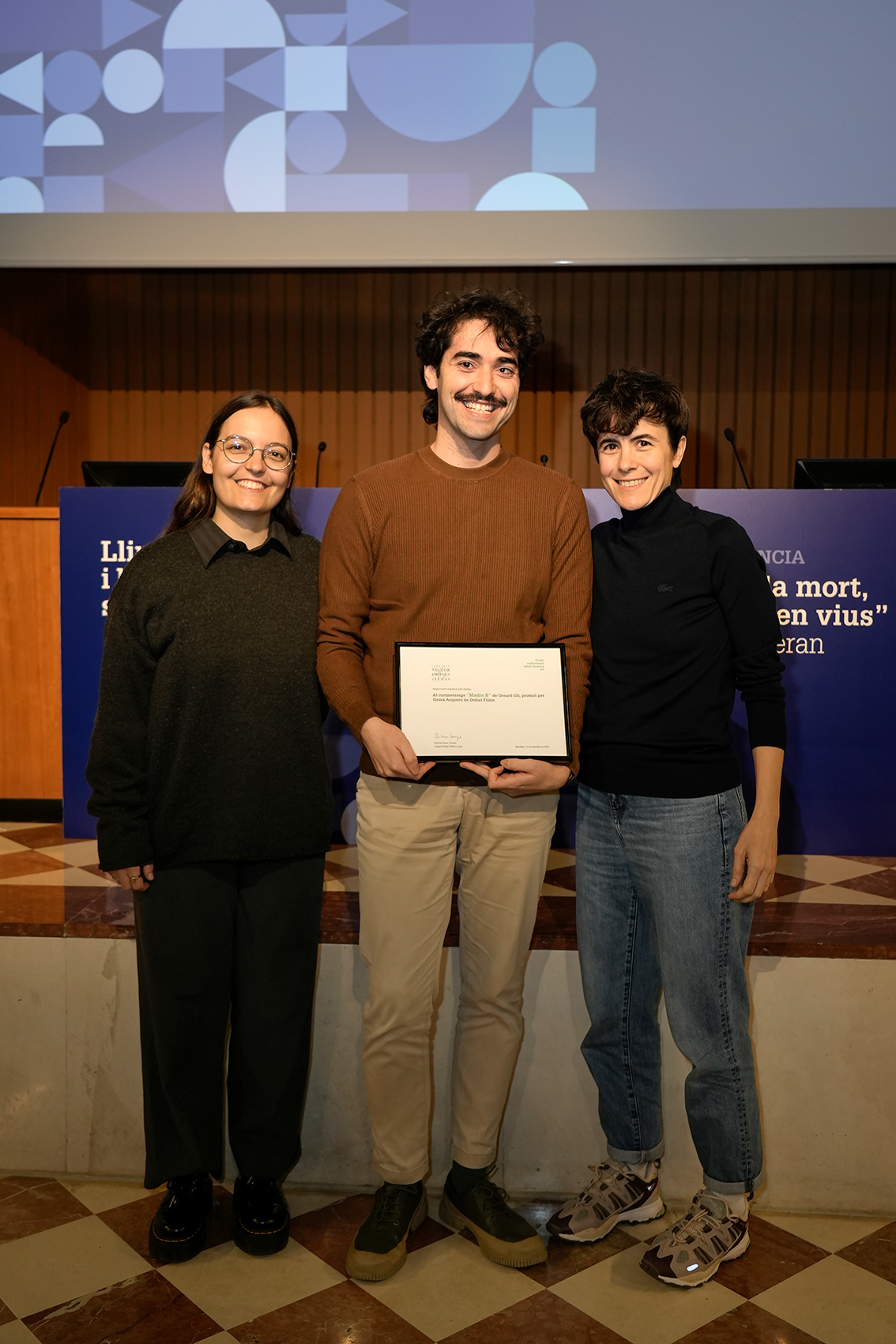
In 2005, Spain legalised same-sex marriage and adoption by same-sex couples. Many minors born before the law was passed, who had same-sex parents, found themselves in a legal limbo, forcing them to bear only one parent’s surname.
This film tells the story of Roger, a teenager with two mothers, Cristina and Esther, highlighting the complexities of assisted reproductive techniques and how scientific advancements often outpace the law. Roger, who only carries the surname of Cristina (the mother who gave birth to him), initiates a legal process to have Esther recognised as his legal mother. This process underscores the bureaucratic challenges and social prejudices that persist to this day.
The film also examines the definition of family, as well as the emotional and legal complexities of having two mothers. Blending archival materials and personal narratives, the film shows us how this problem affects other families and the shortcomings of contemporary cinema in presenting family diversity in our society.
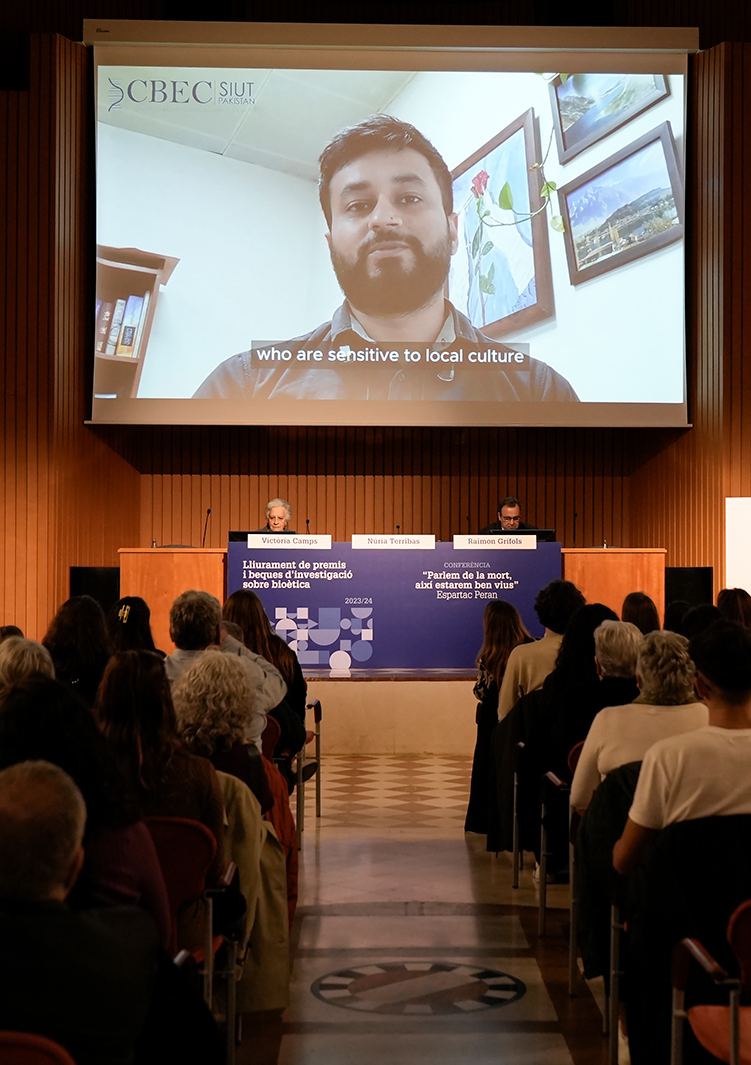
The Centre of Biomedical Ethics & Culture (CBEC) has produced “Local Moral Worlds”, an anthology of short films depicting bioethical cases through dramatic representations. These films address issues from a different perspective that incorporates Pakistan’s cultural context, religious beliefs, and the unique challenges of resource-limited settings in low- and middle-income countries (LMICs).
The series features twelve educational short films that explore a range of bioethical issues, providing nuanced perspectives that reflect the social realities of LMICs, with a particular focus on Pakistan. Focusing on urgent bioethical issues that directly affect millions of people living in LMICs, these films examine topics such as public health, clinical interactions, medical errors, and more.
Link to the short film playlist
2023
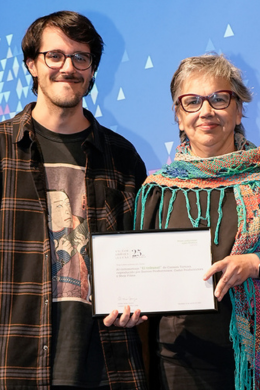
This documentary follows the process involved in the difficulties of obtaining an incapacity to work status. It also examines the responsibility of physicians who sit on medical boards, shedding light on the complex decisions involved in approving or denying such requests. The documentary presents the aspects under assessment by the medical board, which must combine objective medical evidence with empathy for the individual’s suffering and consideration of the social aspects surrounding each case.
The themes seen in this documentary hold bioethical relevance as they offer insights as to what is fair and equitable in the granting of a permanent disability incapacity status (ensuring assistance to those in need whilst preventing potential abuses of the system) and the complexities involved in decision-making in such situations.
2022
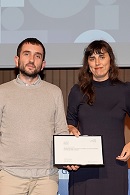
Played out through scenes taken from the everyday life of a couple, this audiovisual project presents the case of a woman who has decided not to have children. On the heels of an unwanted pregnancy, viewers are shown all the conditioning factors that would compel someone to take this path, in defence of her right to not be a mother. Using as its point of departure the “three days to reflect” stipulated by the Spanish government in which women are forced to wait before having an abortion, the protagonist becomes aware of all the preconceived notions and the ways in which motherhood is perceived, but also about what being a woman is in a society such as our own.
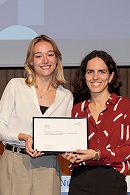
This film presents the testimonials of women who had pregnancies terminated when they were adolescents, in order to share their experiences. The protagonist is one of these voices, reminding us how the issue of abortion is a clear mechanism by which control is exerted over women’s bodies, their decisions, and lives. This film arose from the need to break down the taboos surrounding abortion as well as the stigma and all the pre-conceived ideas that come with it, shining a light on the women who have experienced it first-hand.
2021
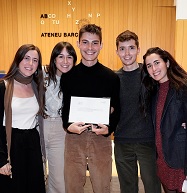
This project is a screenplay created by a group of six students as their graduation project for the degree in Audiovisual Communication, which concentrates on depicting the complex relations of dependency and reciprocity in which grandchildren become involved when they take on the care of their grandparents. The feature-length film also addresses issues such as the diversity to be found in a city like Barcelona, the precarious employment situation of delivery riders, and the operation of the public care home system.
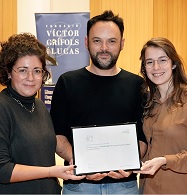
In this documentary, the director talks to his parents about the cancer they have both experienced, and the fear of loss. This is a story about family difficulties that talks openly of delicate issues such as illness and death, in which the protagonists represent Marcello Mastroianni and Catherine Deneuve to give voice to their experiences and transmit them through the medium of cinema.
2020
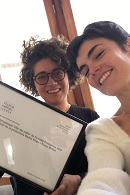
This documentary explores the ransomware attack suffered by the protagonist. After the theft of her laptop, a hacker tries to extort money from her, threatening to share some very intimate photos with her contacts. Faced with the ineffectiveness of the police and the legal system, the protagonist embarks upon an investigation of the dangers associated with private data in today's society. The documentary questions our apparent sense of security with respect to our personal data, contrasted with the vulnerability of our situation.
2019
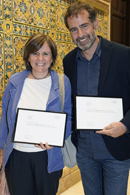
This documentary takes as its starting point a piece of choreography that was created to represent "a journey into madness", reflecting on the boundary between sanity and madness in an effort to destigmatize the association between madness and deviation from the norm. The three dancers talk to three women who have had psychiatric experiences, to design a choreography to represent their lives.
Project completed with director, Maiol Virgili
2018
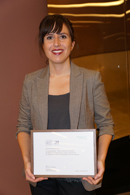
This project tackles the topic of perinatal death and grieving throughout the world, through the stories and experiences of women and their families, and the views of experts. This documentary lifts the lid on this phenomenon, a social taboo that must be discussed if we are to do away with the stigma that surrounds it, provide the health care that mothers need, and enable people to grieve their loss in a way that is acknowledged within their culture.
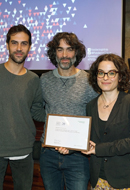
This project seeks to portray and raise awareness of the reality of what it means to be elderly. It focuses in particular on the fact that Spanish society is ageing, while the birth rate continues to fall, and it asks whether this sector of society receives the same levels of attention as children, young people and adults. It also reveals that between 10 and 20 per cent of elderly people suffer abuse and mistreatment, whether these are the result of conscious actions or the uncritical acceptance of social custom.
2017
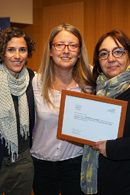
This project considers the story of a woman who is being abused and prefers to risk her life rather than be separated from her dog, a condition attached to the offer of a place in a women's refuge. This documentary describes a situation that affects 70 per cent of women who suffer abuse, and which also affects their pets. The project is supported by Mc Guffin Estudio Audiovisual.
